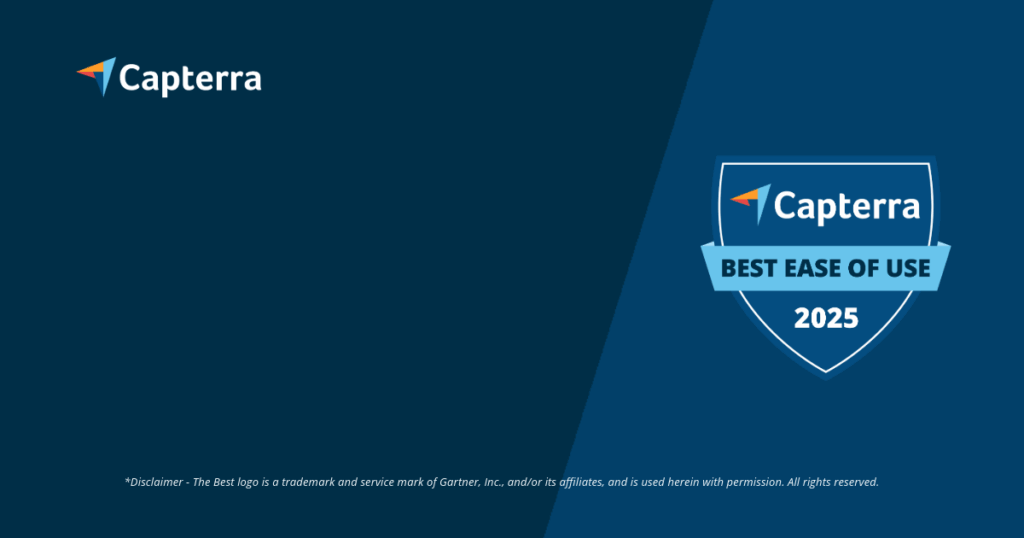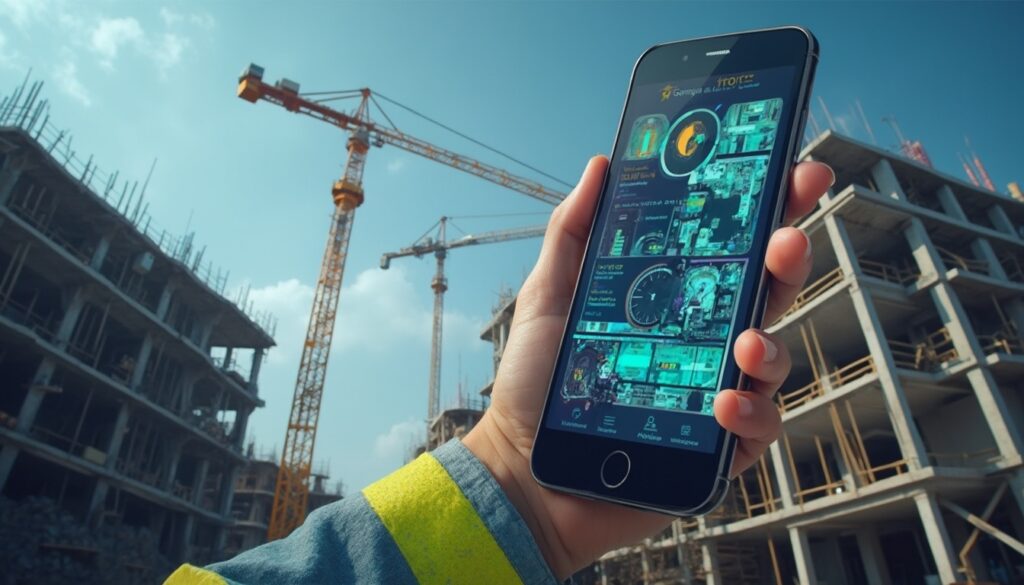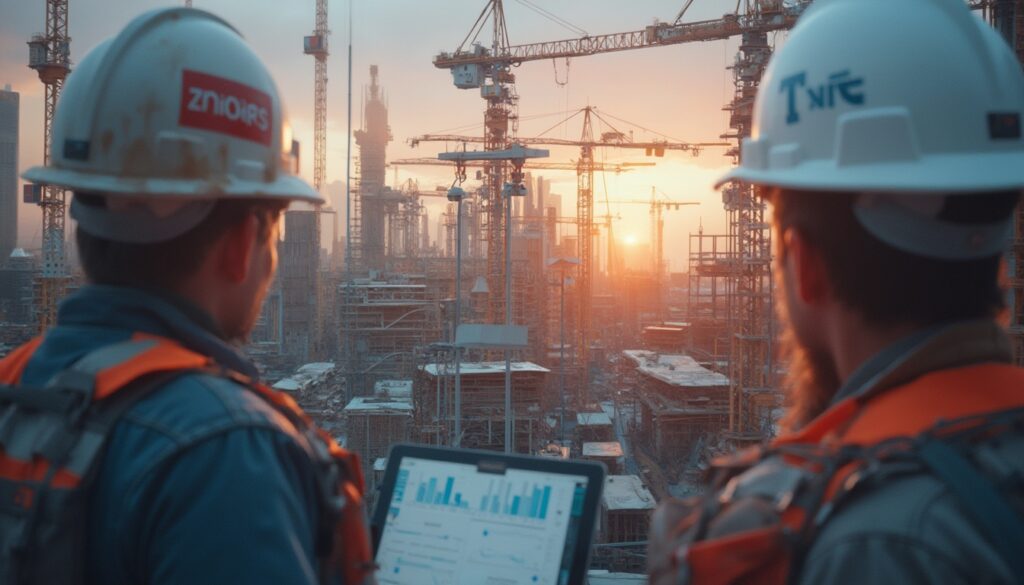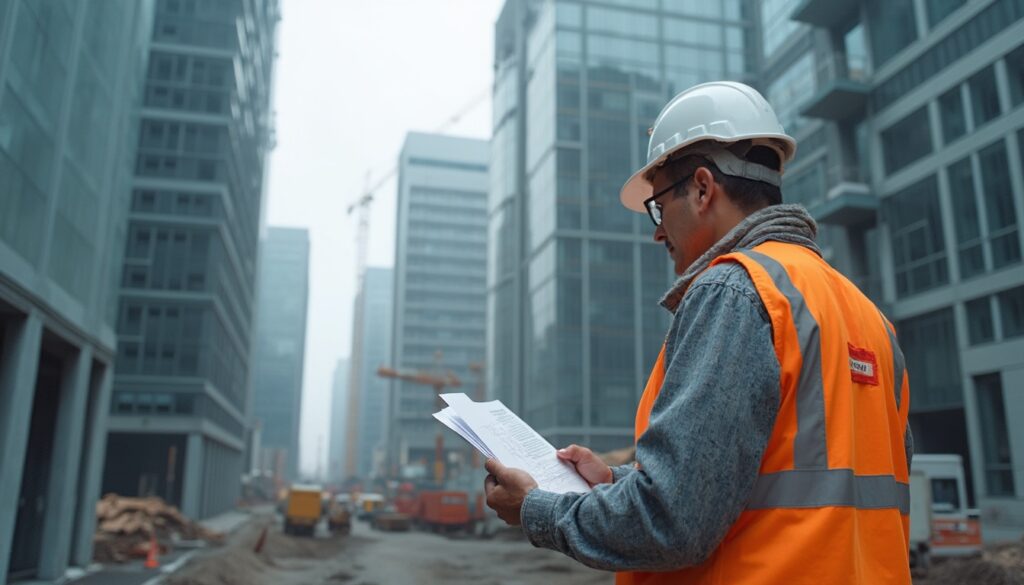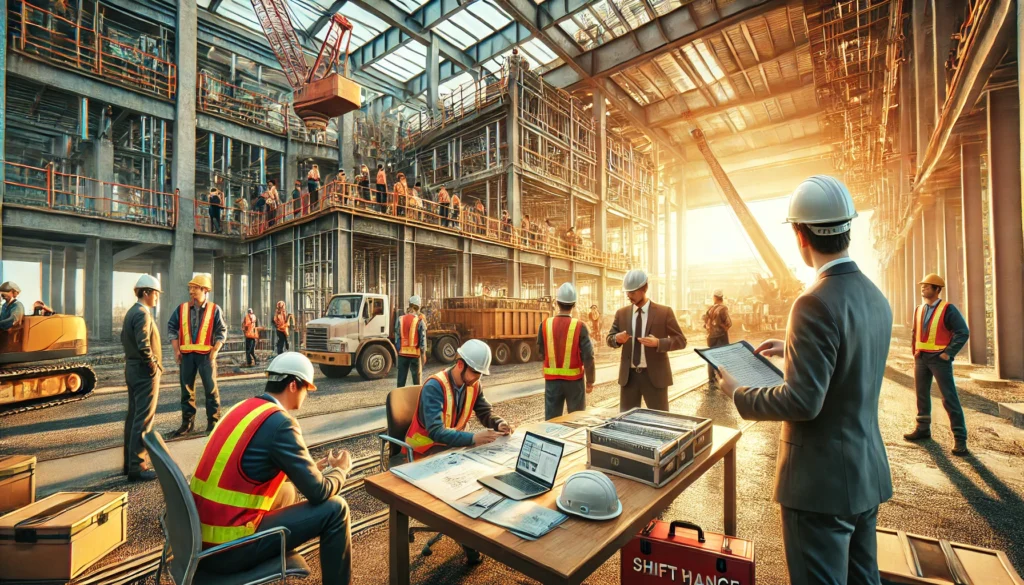The EU Taxonomy: From obligation to opportunity for your construction company
The EU Taxonomy is more than just another regulation; it is a clear political signal that directs capital flows into sustainable projects. For the construction industry, this means: Those who cannot prove they operate sustainably will find it harder to secure financing and public contracts. The requirements are precise and demand a new level of transparency. For example, the primary energy demand of a new building must be at least 10% below the national specifications for nearly zero-energy buildings.
These requirements demand meticulous documentation throughout the entire project lifecycle. Every material, every work step, and every disposal method must be traceable. Manually keeping lists and collecting documents in paper form is not only time-consuming but also extremely prone to errors. This is where a well-thought-out digital transformation of the construction industry, helps streamline processes and record data in a legally secure manner. Transitioning to digital documentation is thus no longer a ‘nice-to-have’ but a strategic necessity to remain competitive.
Circular economy in construction: Reduce waste, conserve resources
The principle of the circular economy is the consistent response to resource scarcity and the massive waste problem in the construction sector. In 2022 alone, the German construction industry produced 216.2 million tons of waste. The goal is to shift from the linear model of ‘Take, Produce, Dispose’ to a closed loop of ‘Reduce, Reuse, Recycle’. This begins in the planning phase with ‘Design for Disassembly’, where a building is constructed in such a way that it can easily be dismantled at the end of its lifespan.
To achieve this goal, two things are essential:
- Selective deconstruction: Materials must be sorted to enable high-quality recycling. The EU Taxonomy requires that at least 90% of non-hazardous construction and demolition waste be reused or recycled.
- Digital material passports: A seamless proof of all materials and products used is the basis for later reuse.
The precise documentation of material separation directly on the construction site is the key to success. With a simple mobile solution, workers can take photos of neatly separated containers and assign them directly to the construction diary. This effortlessly creates the required proof for the paperless construction site and the compliance with recycling quotas.
Digitization as a driver: How technology makes sustainability practically feasible
The implementation of sustainable building practices often fails due to the complexity of processes and the lack of communication between the office and the construction site. This is where digitization comes into play. Digital tools like BIM enable precise virtual planning before the first excavator rolls in. As a result, errors, which studies show account for up to 30% of all construction work, are drastically reduced, conserving valuable resources. A general contractor was able to reduce paper usage by 10,000 square meters per year by switching to digital plans.
However, the best planning software is of little use if the information does not reach the construction site or is not utilized by the workers. The crucial factor is an extremely simple and accepted solution for on-site data collection. Instead of burdening workers with complex apps that require intensive training, Valoon uses the already established and widely used platform WhatsApp. This makes the documentation of construction progress, material deliveries, or correct waste separation as easy as sending a photo to a colleague. This straightforward approach is a central component for successful lean management in construction.
Valoon in practice: Easily create sustainability proofs via chat
Imagine the proof of compliance with the EU Taxonomy is generated almost incidentally in the normal workday. That is exactly the approach of Valoon. Instead of filling out extensive forms, your workers on the construction site document all relevant processes using the tool they already use daily: WhatsApp. A photo of the delivery note for a certified insulation material, a short voice message documenting selective deconstruction, or an image of the correctly filled recycling container – all this information is automatically and legally securely stored in the digital construction diary.
This is how the implementation of sustainability documentation works with Valoon:
- Photo documentation of materials: Take photos of incoming construction materials and their certificates. Valoon archives the images with timestamps and locations.
- Proof of waste separation: Document the correct separation of construction debris with photos. This way, you can easily prove compliance with the 90% recycling quotas.
- Seamless construction diary: All information sent via WhatsApp automatically flows into the construction diary, creating a continuous, chronological project history.
- Reduction of errors: Through clear and direct communication, misunderstandings are avoided, reducing material waste due to rework by up to 30%.
This simple method ensures that the required proofs for the EU Taxonomy in the construction industry are provided without additional effort. Acceptance among employees is high since no new, complicated software needs to be learned.
Your advantage with Valoon: Efficiency, legal security, and future viability
The transformation towards a sustainable construction industry is a challenge that simultaneously presents a great opportunity for forward-thinking companies. It’s not about introducing even more complex processes, but about making existing workflows more intelligent and simpler. Valoon is the tool that helps you achieve exactly that. You not only meet the regulatory requirements of the EU Taxonomy, but also optimize your internal processes.
The benefits are clear: You save valuable time on documentation, reduce errors and material waste, and increase the legal security of your projects. With automatic and continuous logging, you are always able to provide information to authorities, clients, and financing partners. You position your company as a modern and responsible player in a changing market. Don’t invest in complicated software, but in the straightforward and efficient way of working for your employees. The path to the future of the construction industry is digital and simple.
Are you ready to simplify your construction documentation and make your company fit for the future? Then request your free demo now and experience how easy compliance with sustainability standards can be.
More Links
Main Association of the German Construction Industry explores the EU Taxonomy and its impacts on the construction industry in this PDF document.
BDO analyzes the EU Taxonomy and its specific effects on the construction and real estate industry in this article.
German Sustainable Building Council (DGNB) explains the ESG verification (Environmental, Social, and Governance) in construction on this page.
Statista provides comprehensive data and statistics on the topic of Green Building on this page.
German Energy Agency (dena) informs about relevant regulations and requirements for sustainable construction and renovation at the European and national level.
Federal Environment Agency presents the Commission for Sustainable Building on this page, addressing relevant topics.
KfW informs on this page about its funding product ‘Climate-Friendly New Residential Buildings’ for individuals.
Initiative ‘Digitalization Now’ of the Federal Government provides insights into the Digitalization Index and the state of digitalization in Germany on this page.
FAQ
How can Valoon help me meet the requirements of the EU Taxonomy?
Valoon drastically simplifies the required documentation. Your workers on site use WhatsApp to take photos of material deliveries, certificates, or waste separation. This data is automatically stored with timestamps and locations in the digital construction diary, making it legally secure and accessible at any time.
Do my employees need to learn new software?
No. The decisive advantage of Valoon is that it is based on WhatsApp – an application your employees already know and use daily. There is no training effort, and acceptance on the construction site is thus extremely high.
Is documentation via WhatsApp legally secure?
Yes. All data, images, and messages sent via Valoon are stored permanently and timestamped on secure servers in Germany. You receive a continuous and chronological documentation that serves as legally secure proof for your construction diary.
What does Valoon cost for employees on the construction site?
For employees on the construction site, using Valoon via WhatsApp is completely free. Costs only arise for the licenses needed in the office to manage and evaluate the data. This lowers the barrier to entry and makes implementation particularly straightforward.
Does Valoon also support the circular economy?
Yes, indirectly but very effectively. Through simple photo documentation, you can prove the pure separation of waste and demonstrate the use of recycled materials. This forms the basis for proving recycling quotas and creating material passports.
How do I get started with Valoon?
Getting started is easy. Book a free and non-binding demo on our website. We will show you in a short conversation how to set up Valoon for your projects and immediately start simplifying your construction documentation.
